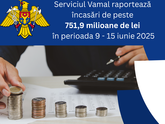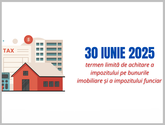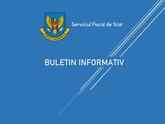
The Moldovan Parliament has approved a package of tax incentives for the business environment and taxpayers to stimulate certain sectors of the economy and the population.
The amendments approved by the deputies are also aimed at ensuring a fairer application of tax and customs legislation. The legislative initiative developed by the Ministry of Finance was supported in the first reading by 57 deputies. The document contains proposals for amendments to 12 laws, including the Tax Code, the Customs Code and other regulations. It was developed based on requests and proposals received from both business representatives and taxpayers. The explanatory note to the bill notes that a clearer and simpler regulatory framework will reduce administrative costs for taxpayers, and the creation of a more transparent and predictable environment will stimulate business and investor confidence in the national economy. The authors proposed to supplement the Tax Code with an article that would regulate the right to deduct compensation paid to employees for visiting rural structures for receiving tourists in Moldova, as well as for vouchers. Their limit will be limited to 50% of the average monthly salary in the economy. At the same time, the employer will be able to offer both season tickets for using sports facilities and compensate for the costs of visiting structures for receiving tourists. Deduction of both types of expenses is possible provided that they do not exceed the established limit of deductible expenses. Otherwise, the employer will have to choose to deduct only one type of expenses incurred in relation to the employee. Also deductible will be expenses for organizing alternative childcare services or payments to the employee as compensation for expenses for alternative childcare services for children under 3 years of age. The amount of these payments will not exceed 2,500 lei. Among the proposed changes to the Tax Code is the expansion of the range of non-taxable income. This concerns benefits received by young people employed in the most important industries. Also, expenses of civil servants, persons holding public office, as well as medical and pharmaceutical workers receiving subsidies for travel or renting housing, since they work in another locality, will not be taxed. In addition, the bill contains some benefits for the business environment. Thus, legislative uncertainty will be reduced, and compliance with tax legislation will be simplified by clarifying and simplifying certain rules. Herewith, small and medium-sized enterprises in rural areas or strategic industries will benefit from cost reductions due to the elimination of certain tax relations. The legislative proposals target the IT, agricultural and rural tourism sectors. Large enterprises will also benefit: clearer tax regimes and more predictable rules are envisaged. Large companies that carry out transactions with affiliated persons will have to comply with the new transfer pricing requirements only if they exceed the threshold of 20 million lei. This will reduce the administrative and unnecessary burden on enterprises that are not associated with significant tax risks.. // 19.06.2025 — InfoMarket.







